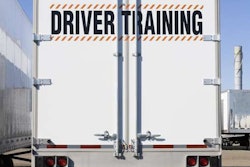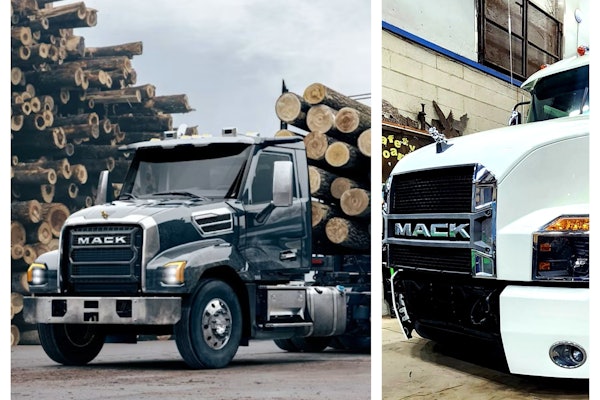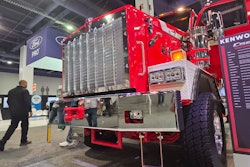
 Get active in mentoring and you might be surprised how much of this biggest piece you can fill with insights gleaned from less experienced haulers you’re helping.
Get active in mentoring and you might be surprised how much of this biggest piece you can fill with insights gleaned from less experienced haulers you’re helping.Owner-operators considering leasing with Landstar sometimes ask recruiting if they can speak to a current owner to get the “real” story on contracting with them. This request occasionally results in a call to me. At times the contact has ended once questions are answered. About half the time, though, I end up talking further as prospective contractors lose the “prospective” status and have further questions. A handful are now in my phone permanently, as the early mentoring experience turned into friendship.
I’ve learned these relationships have benefits that run both ways. Last week I talked to a (now) friend I first spoke to three years ago. The most important things he learned through our conversations, he said:
- That he needed to expand his view of how to solve problems in his trucking business. He noted I helped him understand that you almost always can make a bad situation better by thinking outside the box — sometimes, you have to take risks to make money, and he said I helped him see that if those risks come back to bite him, with some luck and creativity he could figure out a way to get back on a profitable track.
- I emphasized the importance of knowing costs forward and backward, vital when you are trying to make decisions about what load to take next. You simply cannot calculate the potential profit without knowing the cost.
For myself, benefits became apparent from the moment I started talking to new contractors. Obviously, everyone comes from a different background, many were at different stages of life, and their home bases spread all over the country. I pull dry vans, and John, the owner-operator I talked about earlier, pulls a step deck trailer. Trying to guide others, I had to be careful to listen to their particular needs and walk in their shoes, thus broadening my view of many aspects of trucking. Doing the research that was required for some of the drivers I spoke with kept me from getting stuck in a rut of only my own issues and concerns.

My naturally extroverted personality makes the talking involved in mentoring easy. But I know it’s not for everyone. I have had company drivers transitioning to owner-operators who seemed to expect I would make decisions for them, whether about what truck to buy, what load to take, etc. I have occasionally been blamed by an operator when they made a bad decision or simply had bad luck on the road. There have been argumentative folks and others who have withheld vital information that would have changed how I was advising them, had I been aware of that info. I have caught a couple in outright lies, which ended the relationship.
And it doesn’t have to be a long-term process. Even a single minute of help to a struggling owner-op can made a difference. I’m sure you’ve seen a novice driver struggling to back their truck in a crowded lot. How did you react? Snicker and make a snide comment in your head or out loud? Or did you help the driver with guidance and kind encouragement?
Engaging a driver who appears to be struggling in conversation about their day can be a way to see if a driver can use a listening ear and a bit of advice. I have seen truckers looking bewildered at the shower kiosk. That’s a perfect time to offer a minute of mentoring. Explaining how to obtain and use shower credits has just made them less stressed and feeling more competent. Whether you choose to commit to a new driver for several months or just a minute, you can help that driver be safer and more secure. That’s worth quite a lot to all of us.
The benefits have always outweighed any downsides for me. Trucking broadly speaking has seemed to support the idea of apprenticeship and mentoring as a way to improve safety and retention, but I believe the only truly effective way to do that is through experienced owner-operators dedicating themselves to one-on-one mentorship.
If you’re not doing it already, I strongly urge you to consider it to help drive conditions of success for others — and ultimately yourself.
A few suggested dos and don’ts in that regard:
For the mentor:
- Listening may be the most important skill. If you like to talk more than listen, being a mentor may not be for you.
- Set boundaries for time and personal contact up front. A mentee who doesn’t respect those boundaries may not even be coach-able.
- Keep it simple. Agree on how you’ll communicate: phone, text, email, pictures or in person …
- Set goals and have a finish line.
- Develop mentor-mentee relationships slowly. Before you share your personal details, do what you can to ensure you’re a good fit and have similar philosophies about the goals of the relationship.
- Honesty is a necessity; make this requirement very clear
- This is an investment by both parties, so be sure you are willing to fulfill your commitment.
- Admit when you don’t know something and then together search for the answers.
For the mentee:
- Respect your mentor’s time and privacy.
- Do not expect your mentor to make decisions for you; you are the person ultimately responsible for your actions.
- A mentor isn’t necessarily the ultimate source, so do your own research and learn how to verify anything that doesn’t seem right to you.
- If you struggle with reading or finding time for it, try using audiobooks and challenge yourself to learn about subjects outside of trucking and truck driving.
- Develop a “Whys Guy” outlook. Seek to understand the whys, hows and whats of challenges you face. Don’t be afraid to ask questions.
- Examine — and learn from — any setbacks. Don’t follow the crowd unless you are sure they are on the same page as you. You’re an individual and should cultivate your own path.











